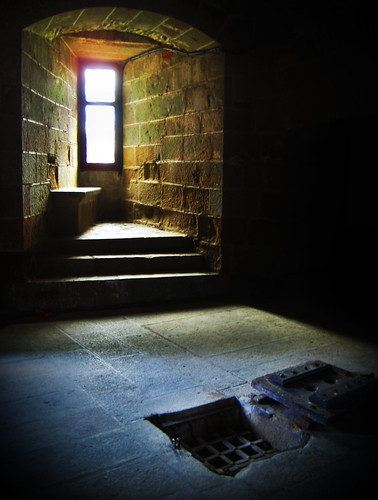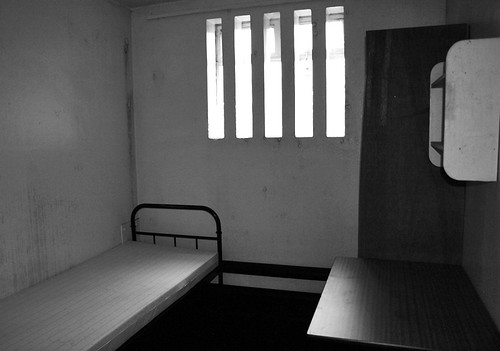Yesterday I visited two friends at Dwight Correctional, a maximum security women’s prison. It is not a nice place, I don’t mean physically, the architecture is fantastic, I mean the atmosphere is obsessive. The air is heavy and the general feeling is one of despair, but it is a prison so as an adult, you do not expect it to be cheerful.
The visiting room is a feeble attempt at normalcy, it is stark and uninviting. The bathrooms have toilet seats that need repair and lack doors for privacy. The guards sit high at a desk on a dais and counting the minutes till you leave, and they can return to their gossip, visitors’ presence an unwelcome intrusion on their lives.
The visitors scatted at tables their faces painted with yellow ‘happy faces ‘attempting brave faces making the best of their situations.
Bobbing in this sea are exceptions, the children, dragged to visit their Mothers, Aunts, Grandmothers; they do not realize they have stepped into an alternate reality. Dressed in their best and told to behave as if in church.
They do not understand that the rules are different behind the prison gate. Children do not comprehend that what is right outside the gate can be very wrong inside the gate.
There are rules if you are to visit a prisoner, and the rules are for the protection and safety of society. They are to prevent the passing of drugs and weapons, the rules are there for a good reason. They are necessary and must be enforced.
This is not about these rules. This is about a boy.
A boy whose name I do not know but who was visiting with his five siblings and his Mother, dressed in their Sunday best, the girl’s hair in cornrows with white bows, sitting perfectly straight you could not help but marvel at the wonderful job the family must be doing. They were so perfectly behaved I comment to the Mother how wonderfully behaved they were, and how I hoped my children when a similar age would have behaved as well. She must be doing a wonderful job, congrats to her and her family.
She said Thank you and by the way it was the boy’s 6th birthday.
I said happy birthday and that it deserved a soda pop did he wish, with his Mother’s permission, to pick one. The prisoner they were visiting was not there at this time.
He did so I proceeded to ask him to accompany me and pick out what he wanted. He got up and put his hand in mine. The officer on duty called me over and berated me as if I was a piece of dirt that ‘I could not talk to the boy and it was wrong, I was very wrong to even talk to them let alone offer to buy a poop, it was against the rules.
I said what rules there was not a prisoner around and it was his birthday, If I made a mistake I was sorry just let but him the pop and I will not do it again. She said was wrong told me to ‘go sit’ and called her supervisor.
I sat, the boy went back to his table without his birthday treat.
I have a feeling the little boy has suffered many disappointments in his life and this was just another broken promise. I realize it is a minor incident but I couldn’t help but wonder if this incident coupled with others might result in his being the one visited behind the gates later in his life.
I know it is a stretch, but isn’t life the culmination of many small incidents? Aren’t we who we are today, because of what we experienced yesterday?
I wish I could have brought that soda. I hope society doesn’t wish it too.
By the way I checked the rules, no cross visiting with prisoners; it does not say anything about visitors talking to each other.







